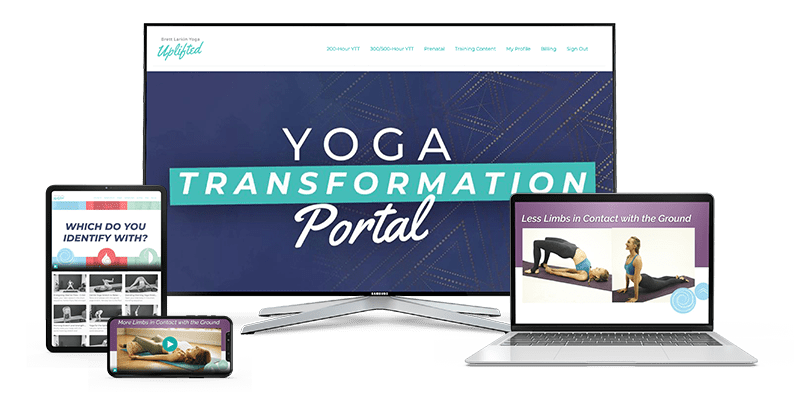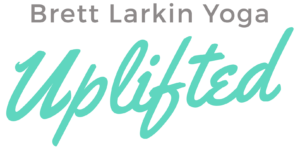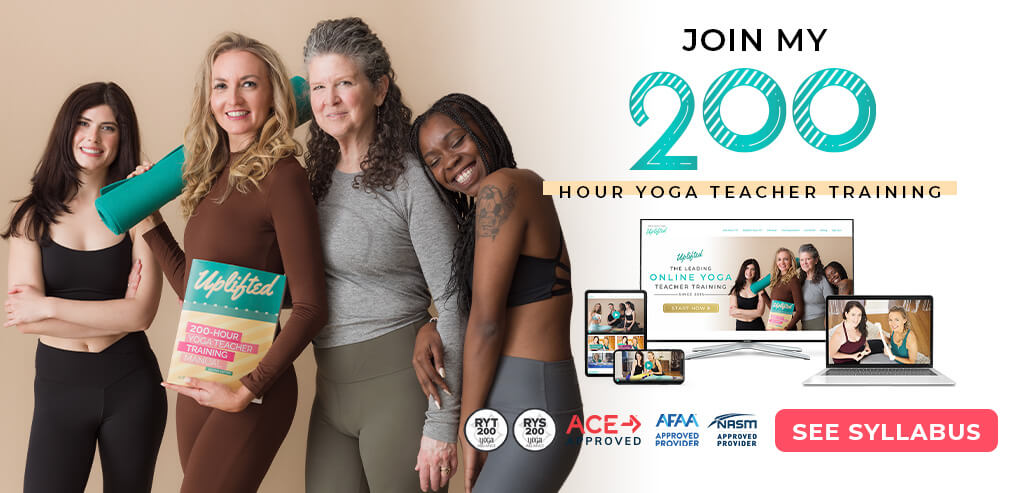
Like the early days of a relationship that you know is right, getting really into yoga as a beginner is often a time full of excitement, reflection and awakening (though not always in the way you expect).
So you’ve fallen head over heels in love with yoga and already want to take it a step further. You’re wondering, can a beginner do a yoga teacher training?
A teacher training course is an incredible learning opportunity and – no doubt – will change your life, forever. This article will guide you through some of the common questions yogis just like you have at the beginning of their journey practicing yoga.
Can a Beginner do a Yoga Teacher Training?
- The Short Answer: Where there’s a will, there’s a way! Yes. A beginner can do a yoga teacher training.
- The Medium Answer: Perhaps. Some yoga schools require a certain level of practice experience before enrolling in YTT. This varies, so you’ll have to do some research.
- The answer you may not want to hear: YTT is an investment. It pays to have clear direction, an evolved relationship to yourself, and long-term practice experience to get the most out of your training!
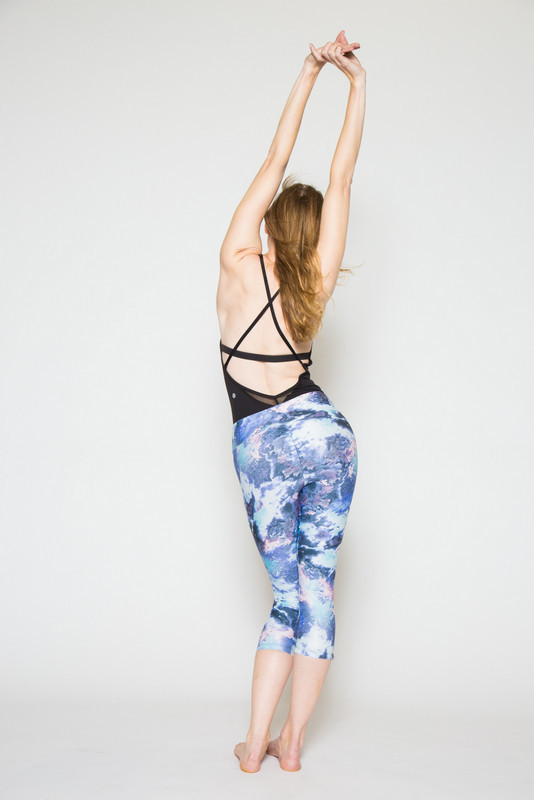
Yes, Really: Anyone Can Become a Yoga Teacher
With so many yoga teacher training courses to choose from, you might wonder if anyone can become a yoga teacher. The short answer: Yes. In the United States and around the globe, there are so many YTTs available, some certified by Yoga Alliance and others independent.
Nowadays, you can even find Yoga Alliance certified YTTs online, making yoga education more widely available than ever before. If you’re a busy mom, student, caregiver, or professional, this means you can even attend YTT from your home.
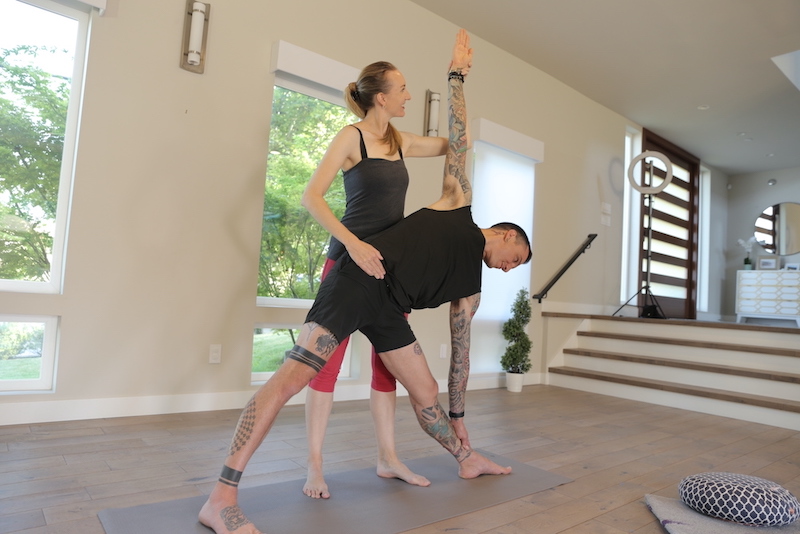
Reasons for Taking a Yoga Teacher Training
Depending on the type of training, there may be a number of reasons why students choose to pursue a YTT. Some yoga teacher trainings require prior certifications and a certain level of experience, and others do not. Working yoga teachers who are registered with Yoga Alliance are actually required to log a certain number of continuing education (CE) hours in order to maintain their status, and many yoga teachers (like me!) have two or more base 200-hour YTT credentials in various disciplines.
Your YTT is bound to be a literal chocolate box of amazing students with a wide range of backgrounds and experience levels. There are some common reasons why yogis like you might choose to do a YTT, though. Here are a few of them:
- You want to improve your yoga practice: You might find that you don’t get enough out of your studio yoga training or maybe you struggle sticking to a consistent practice. Attending a training can be a great way to get to know your body and immerse yourself in asanas, meditations, and breathing techniques to inspire your home practice.
- You want to go beyond asana: Modern yoga studios typically focus on asana – the physical poses. You might have already experienced that there is so much more to yoga than poses, and are craving more! A teacher training gives you a deeper understanding of the seven limbs of yoga that aren’t about physical postures, and how you can apply them in your own practice and life.
- You want to teach yoga! Even if your yoga mat feels like a new space, you might know that sharing your experience on the mat as a yoga teacher is your true calling. Many YTT students are teachers, energy and body workers, healthcare providers, doulas and other professionals who wish to compliment their expertise in other areas of holistic health and well-being by with a yoga certification.
You might also like: 10 Signs You’re Ready for a Yoga Teacher Training
Take my quiz to find out which YTT is best for you:
I Don’t Want to Teach: Can I Still Take a Yoga Teacher Training?
You might be surprised to know that the vast majority of people attending YTTs don’t necessarily want to teach yoga immediately after graduating. There is nothing wrong with that (but I do invite you to explore your possible fears around teaching before you say no, never). Before signing up for a training, make sure you know who the target group is for the training. If there is a teaching-oriented focus and you’re not interested in teaching, at least right away, you might be better off finding something like my online beginners yoga course to test the waters.
Be aware that a Yoga Alliance accredited school is required to include practice-teaching in their curriculum. Don’t let this put you off. Even though you might not want to become a yoga instructor, this is a great opportunity to broaden your experience and understand poses from the perspective of instructing them.
Fall in love with my 200-Hour teacher training or …
Experience 3 Training Videos from Inside My 200-Hour Online YTT
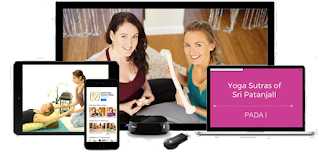
Getting the Most Out of Your YTT: Investment & Commitment
As with any qualification, a YTT requires you to invest not just money, but also time. If you’re going to the trouble of making space in your life for a YTT, you want to get the most out of your yoga training, right?
Being a student is all about taking accountability for what you wish to learn. If you can commit to self-study and keep an open mind to learning, you will definitely have valuable experience – even if it’s not exactly what you expect.
If you’re unsure how to pick the best training for you out of all those options, I’ve put together some guidelines to help you choose.
Practice Level and Experience
No matter what kind of training you go for, it can be helpful to have done at least a few yoga classes and have established a regular practice over time before taking a YTT – this doesn’t mean just asana, the physical practice. It is a good idea to familiarize yourself with other tools of yoga such as meditation, breath work, or kirtan.
Don’t freak out though! If this is all new territory for you, your YTT could be a great introduction to all of these elements of a balanced practice, as long as you maintain an open, curious beginner’s mind. This easiest when you are truly a beginner – obviously – but is truly an art that you can only master when you are no longer a beginner.
You might also like: 6 Things to Know Before You Start Training to Become a Yoga Teacher
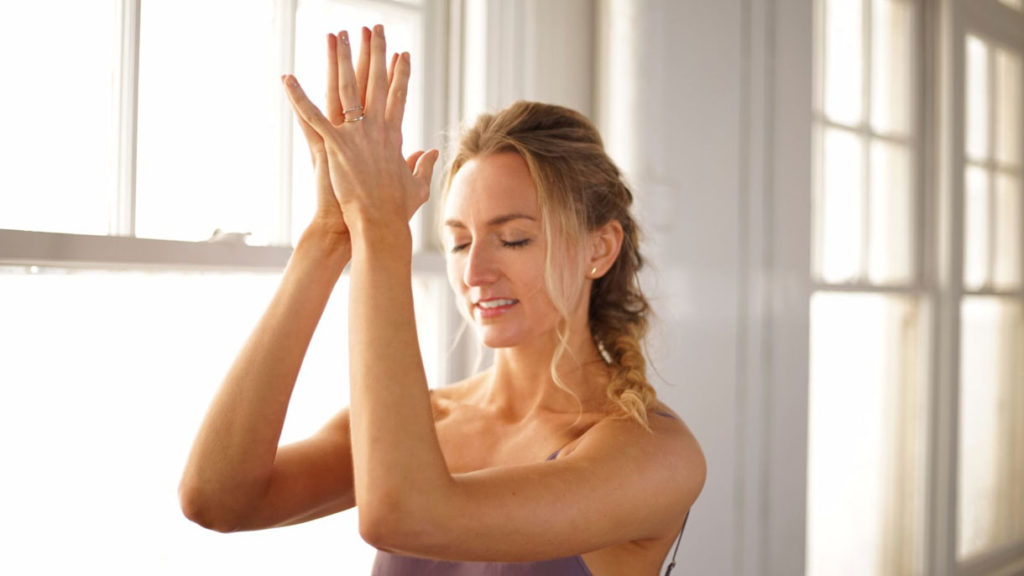
Knowledge of Yoga
Now by “knowledge of yoga”, let me clarify:
- The things you learn in books (yoga philosophy, history, modern energy work, etc)
- What you know by experience simply being in your body and being, in relation to you
Possessing both types of knowledge will help you make the most of your yoga teacher training. If you’ve been through a significant life experience (war, parenthood, immigration, illness, a career, etc.) and yoga has helped you cope and grow, your embodied knowledge will become a natural starting point from which to teach!
My point here is to come prepared. Do some journaling before you dive in to your YTT about the experience you’re bringing to the training. Put together a list of unanswered questions you might have about your practice, yoga philosophy, and your own path of self-discovery.
I also recommend researching the different styles and types of Yoga to make sure you pick a YTT that suits your preferences. For example, you might want to focus on Ashtanga Yoga whereas other yogis might prefer an intensive training in Yoga Nidra.
Make your yoga practice 2x more potent in HALF the time (usually $47) FREE 👇
